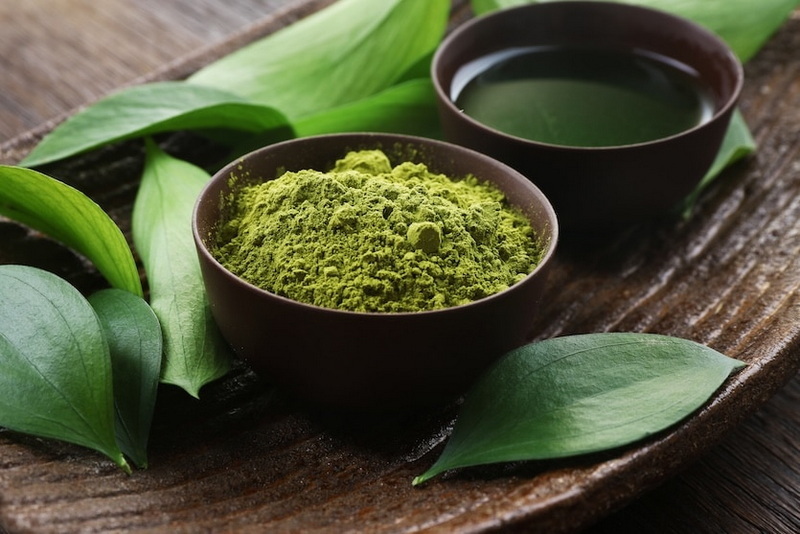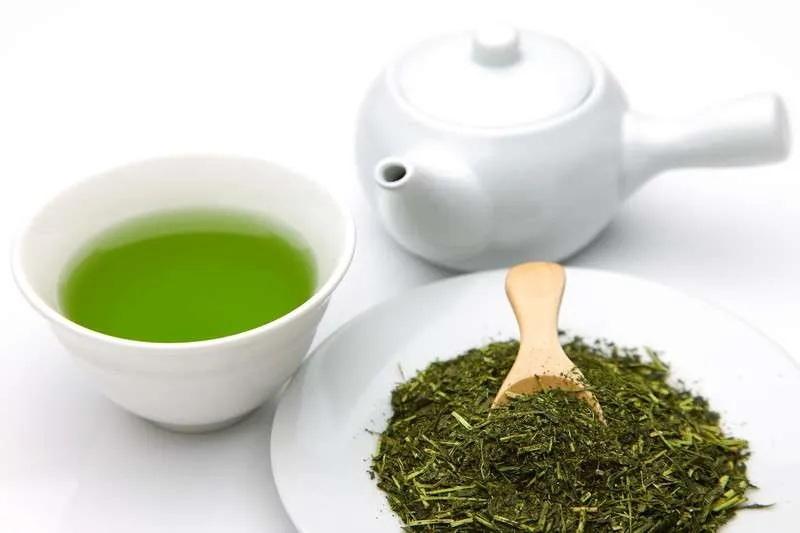Content Menu
● Rich in Antioxidants
>> Antioxidants in Green Tea
● Promotes Heart Health
>> Mechanisms Behind Heart Health Benefits
● Supports Weight Loss
>> How Green Tea Aids Weight Loss
● Enhances Brain Function
>> Cognitive Benefits
● Aids in Diabetes Management
>> Diabetes Management Mechanisms
● Supports Liver Health
>> Liver Health Benefits
● Improves Skin Health
>> Skin Health Mechanisms
● May Help Prevent Cancer
>> Cancer Prevention Insights
● Improves Oral Health
>> Oral Health Benefits
● Supports Exercise Recovery
>> Exercise Recovery Mechanisms
● Conclusion
● FAQ
>> 1. What is the recommended dosage for green tea leaf extract?
>> 2. Can I drink regular green tea instead of taking extracts?
>> 3. Are there any side effects associated with green tea leaf extract?
>> 4. How does green tea leaf extract help with weight loss?
>> 5. Is it safe for everyone to take green tea leaf extract?
● Citations:
Green tea, derived from the leaves of the Camellia sinensis plant, has been consumed for centuries and is renowned for its numerous health benefits. One of the most potent forms of green tea is the extract, which contains concentrated amounts of its beneficial compounds. This article explores the various advantages of green tea leaf extract, supported by scientific research.

Rich in Antioxidants
Green tea leaf extract is particularly high in antioxidants, specifically catechins, which are a type of polyphenol. The most studied catechin is epigallocatechin gallate (EGCG), known for its powerful antioxidant properties. Antioxidants play a crucial role in reducing oxidative stress in the body by neutralizing free radicals, which can damage cells and contribute to aging and various diseases.
Antioxidants in Green Tea
The high concentration of antioxidants in green tea extract is one reason why it has gained popularity as a health supplement. Studies have shown that these antioxidants can help combat oxidative stress, which is linked to chronic diseases such as cancer, heart disease, and neurodegenerative disorders. By incorporating green tea leaf extract into your daily routine, you may enhance your body's ability to fight off these diseases.
Promotes Heart Health
Research indicates that green tea extract can improve heart health by reducing blood pressure and cholesterol levels. A study showed that participants who took green tea extract experienced significant reductions in both total and LDL (bad) cholesterol levels. Additionally, the antioxidants in green tea may help decrease inflammation and improve blood fat levels, further promoting cardiovascular health.
Mechanisms Behind Heart Health Benefits
The heart health benefits of green tea extract can be attributed to several mechanisms:
- Improved Endothelial Function: Green tea extract can enhance the function of the endothelium (the lining of blood vessels), which plays a critical role in regulating blood flow and pressure.
- Reduction of Inflammation: Chronic inflammation is a significant risk factor for heart disease. The anti-inflammatory properties of green tea can help mitigate this risk.
- Lower Blood Pressure: Some studies suggest that regular consumption of green tea may lead to modest reductions in blood pressure, particularly in individuals with hypertension.
Supports Weight Loss
Green tea extract is commonly included in weight loss supplements due to its ability to enhance fat oxidation and boost metabolic rate. Studies have demonstrated that regular consumption of green tea extract can lead to significant reductions in body weight and body fat percentage. The catechins in green tea are believed to stimulate thermogenesis, which helps burn calories more efficiently.
How Green Tea Aids Weight Loss
- Increased Fat Oxidation: Green tea extract promotes the breakdown of fat cells and their conversion into energy.
- Enhanced Metabolism: The caffeine content in green tea can increase metabolic rate temporarily, leading to more calories burned throughout the day.
- Appetite Suppression: Some research suggests that green tea may help reduce appetite, making it easier to adhere to a calorie-restricted diet.
Enhances Brain Function
The caffeine and L-theanine present in green tea extract work synergistically to improve brain function. Caffeine acts as a stimulant, while L-theanine promotes relaxation without drowsiness. Research suggests that these compounds can enhance cognitive function, improve mood, and protect against neurodegenerative diseases such as Alzheimer's.
Cognitive Benefits
- Improved Focus and Attention: The combination of caffeine and L-theanine has been shown to improve attention span and focus during tasks.
- Memory Enhancement: Some studies indicate that EGCG may promote neurogenesis (the formation of new neurons), potentially improving memory and learning capabilities.
- Mood Regulation: Regular consumption of green tea has been linked to reduced anxiety levels and improved overall mood.

Aids in Diabetes Management
Green tea extract may help regulate blood sugar levels and improve insulin sensitivity. Studies have shown that individuals who consume green tea regularly have a lower risk of developing type 2 diabetes. The catechins in green tea can also help reduce oxidative stress associated with diabetes complications.
Diabetes Management Mechanisms
- Improved Insulin Sensitivity: Green tea has been shown to enhance insulin sensitivity, making it easier for cells to absorb glucose.
- Blood Sugar Regulation: Regular consumption may lead to better regulation of blood sugar levels after meals.
- Reduced Risk of Complications: By mitigating oxidative stress and inflammation, green tea may help prevent complications associated with diabetes.
Supports Liver Health
Green tea extract has been linked to improved liver function by reducing inflammation and oxidative stress. Research indicates that individuals with non-alcoholic fatty liver disease (NAFLD) who consumed green tea experienced significant decreases in liver fat content and inflammation.
Liver Health Benefits
- Detoxification Support: The antioxidants in green tea help protect the liver from damage caused by toxins.
- Fat Reduction: Studies suggest that regular consumption can reduce liver fat accumulation, improving overall liver health.
- Protection Against Liver Disease: Some research indicates that green tea may lower the risk of liver diseases such as cirrhosis or fatty liver disease.
Improves Skin Health
Both topical application and oral consumption of green tea extract can benefit skin health. It has been shown to reduce acne symptoms, improve skin elasticity, and protect against UV damage due to its anti-inflammatory properties. A study found that participants taking green tea extract experienced significant reductions in acne lesions after four weeks.
Skin Health Mechanisms
- Anti-Aging Effects: The antioxidants in green tea can help reduce signs of aging by combating free radicals that cause skin damage.
- Acne Reduction: Green tea's antibacterial properties can help reduce acne-causing bacteria on the skin.
- UV Protection: Some studies suggest that topical application of green tea extracts may provide protection against UV radiation damage.
May Help Prevent Cancer
The antioxidant properties of green tea extract have been studied for their potential role in cancer prevention. Some research suggests that EGCG may inhibit the growth of cancer cells and reduce tumor size in various types of cancer, including prostate and breast cancer. However, more extensive clinical studies are needed to establish definitive conclusions.
Cancer Prevention Insights
- Cell Growth Inhibition: EGCG has been shown to inhibit cell proliferation in certain cancer types.
- Induction of Apoptosis: Some studies indicate that EGCG may promote programmed cell death (apoptosis) in cancer cells while sparing healthy cells.
- Metastasis Prevention: Early research suggests that EGCG may hinder the spread (metastasis) of cancer cells throughout the body.
Improves Oral Health
Green tea extract has antibacterial properties that can promote oral health by reducing harmful bacteria in the mouth and preventing cavities and gum disease. Regular consumption may lead to fresher breath and overall better dental hygiene.
Oral Health Benefits
- Reduction of Plaque Formation: Green tea's antibacterial effects can inhibit plaque formation on teeth.
- Gum Disease Prevention: By reducing inflammation and bacteria levels, it may lower the risk of periodontal disease.
- Fresh Breath: The antimicrobial properties help combat bad breath caused by bacteria.
Supports Exercise Recovery
Athletes often use green tea extract as a supplement to enhance recovery after workouts. Its anti-inflammatory effects can help reduce muscle soreness and speed up recovery times after intense physical activity.
Exercise Recovery Mechanisms
- Reduced Muscle Soreness: The anti-inflammatory properties can alleviate post-exercise muscle soreness.
- Enhanced Endurance: Some studies suggest that green tea may improve exercise performance by increasing endurance capacity.
- Faster Recovery Times: Regular supplementation may lead to quicker recovery between workouts or competitions.
Conclusion
Green tea leaf extract offers a myriad of health benefits ranging from antioxidant support to improved heart health, weight management, brain function enhancement, and potential cancer prevention. Its active compounds, particularly EGCG, contribute significantly to these effects. While incorporating green tea extract into your diet may provide numerous advantages, it is essential to consult with a healthcare professional before starting any new supplement regimen.
Incorporating this powerful natural supplement into your lifestyle could lead not only to improved physical health but also enhanced mental well-being. As with any supplement or dietary change, moderation is key; understanding your body's response will ensure you reap the maximum benefits while minimizing any potential side effects.

FAQ
1. What is the recommended dosage for green tea leaf extract?
The typical recommended dosage ranges from 250 mg to 500 mg per day, preferably taken with food to avoid potential side effects.
2. Can I drink regular green tea instead of taking extracts?
Yes, drinking regular green tea can also provide many health benefits; however, extracts offer a more concentrated dose of active compounds.
3. Are there any side effects associated with green tea leaf extract?
While generally safe when taken as directed, excessive consumption can lead to liver toxicity or gastrointestinal issues.
4. How does green tea leaf extract help with weight loss?
Green tea extract enhances fat oxidation and boosts metabolic rate, helping the body burn calories more effectively.
5. Is it safe for everyone to take green tea leaf extract?
Most people can safely consume it; however, individuals with certain medical conditions or those on specific medications should consult a healthcare provider first.
Citations:
1. https://www.healthline.com/nutrition/10-benefits-of-green-tea-extract
2. https://pubmed.ncbi.nlm.nih.gov/38031409/
3. https://pmc.ncbi.nlm.nih.gov/articles/PMC2855614/
4. https://pmc.ncbi.nlm.nih.gov/articles/PMC6412948/
5. https://www.mountsinai.org/health-library/herb/green-tea
6. https://www.webmd.com/diet/health-benefits-green-tea
7. https://www.medicalnewstoday.com/articles/269538
8. https://www.healthline.com/nutrition/top-10-evidence-based-health-benefits-of-green-tea






























